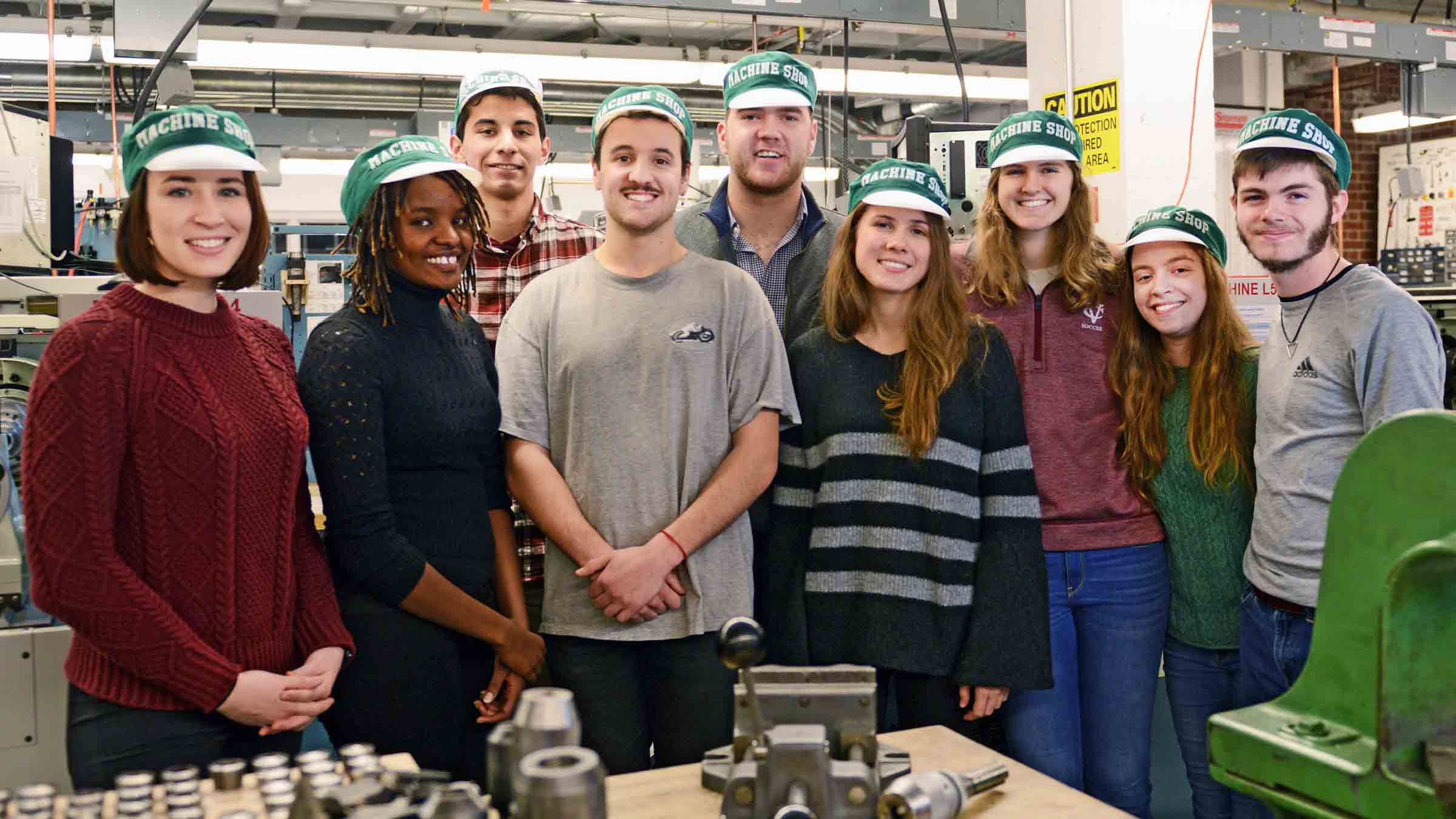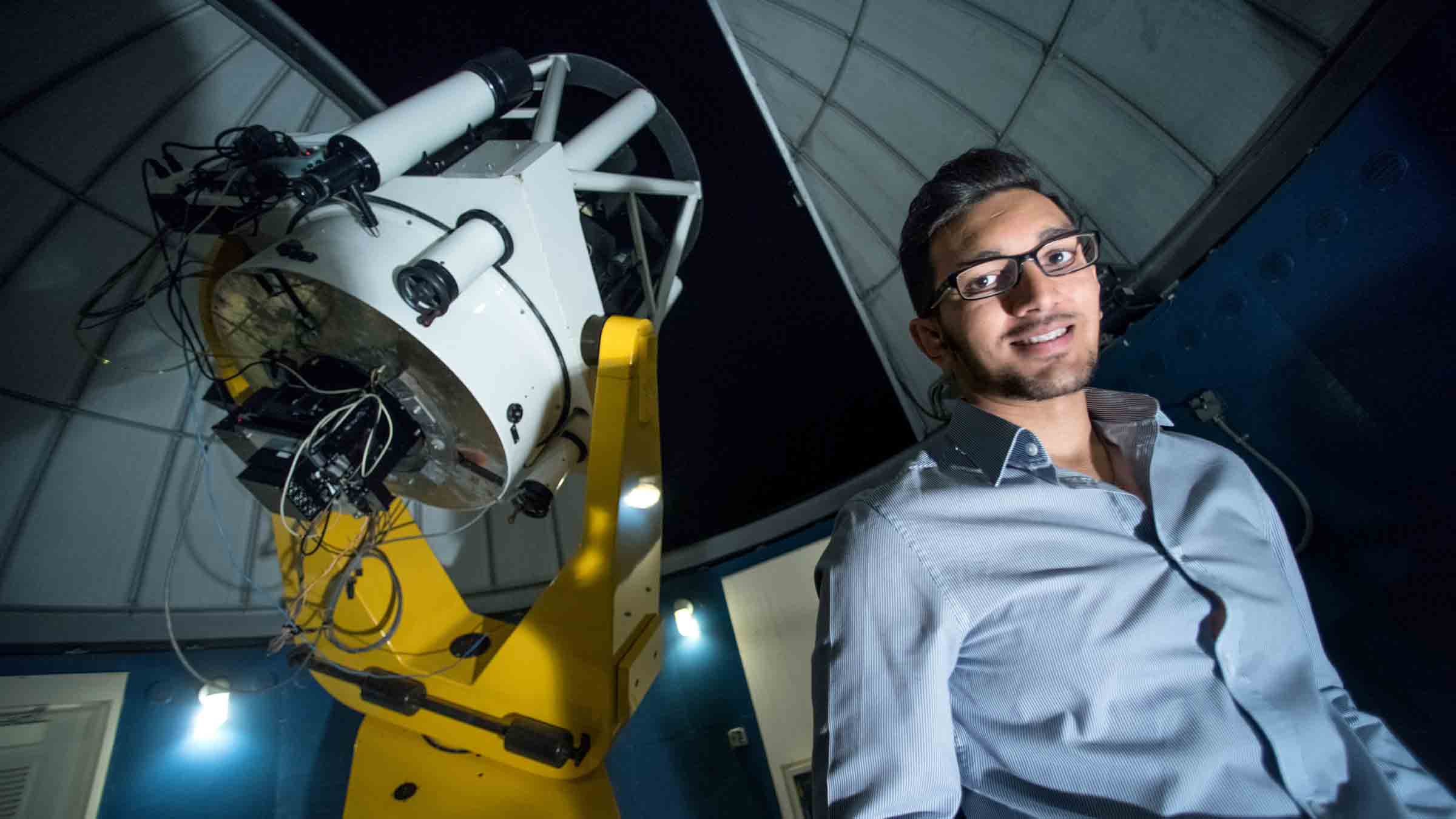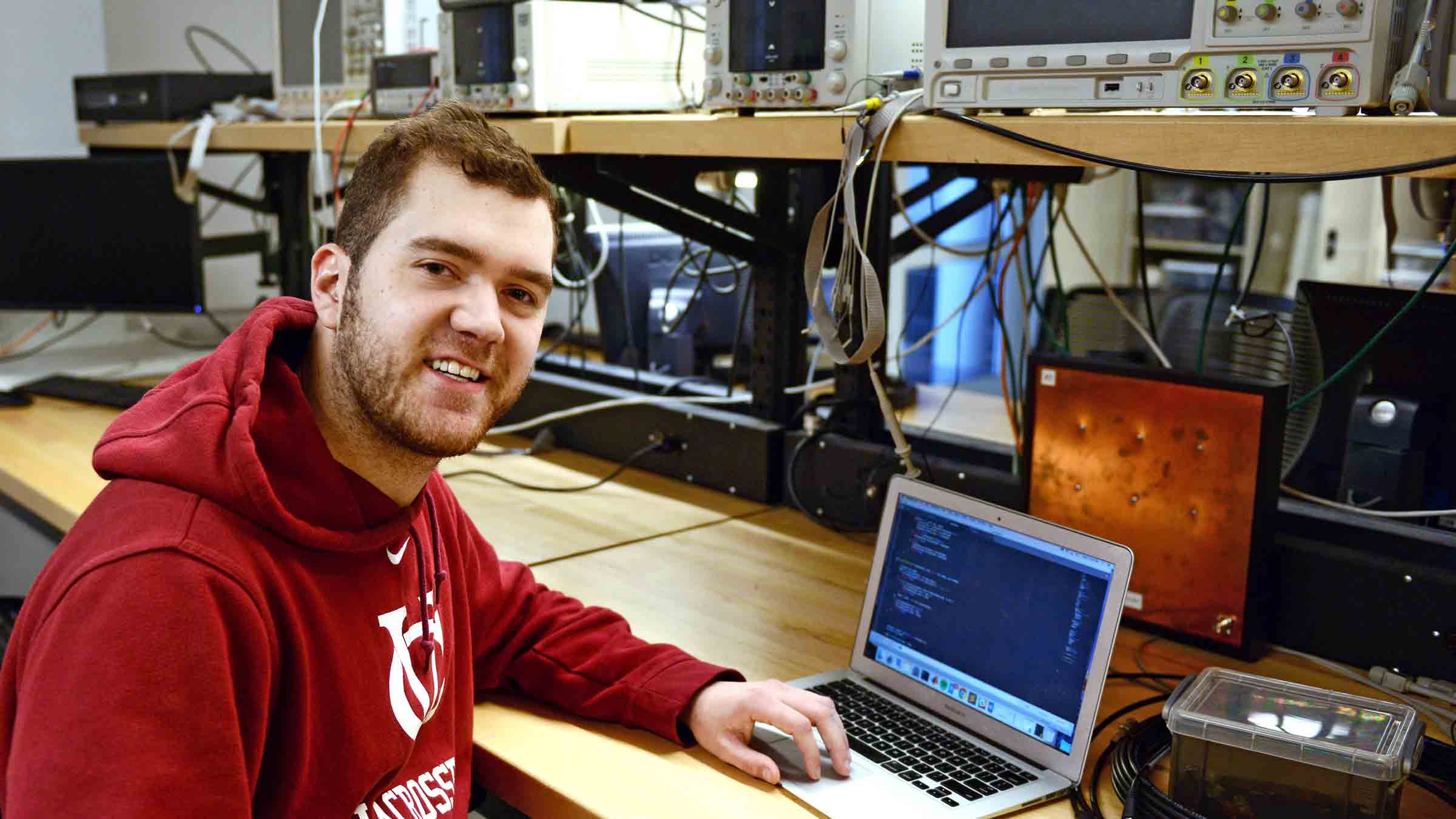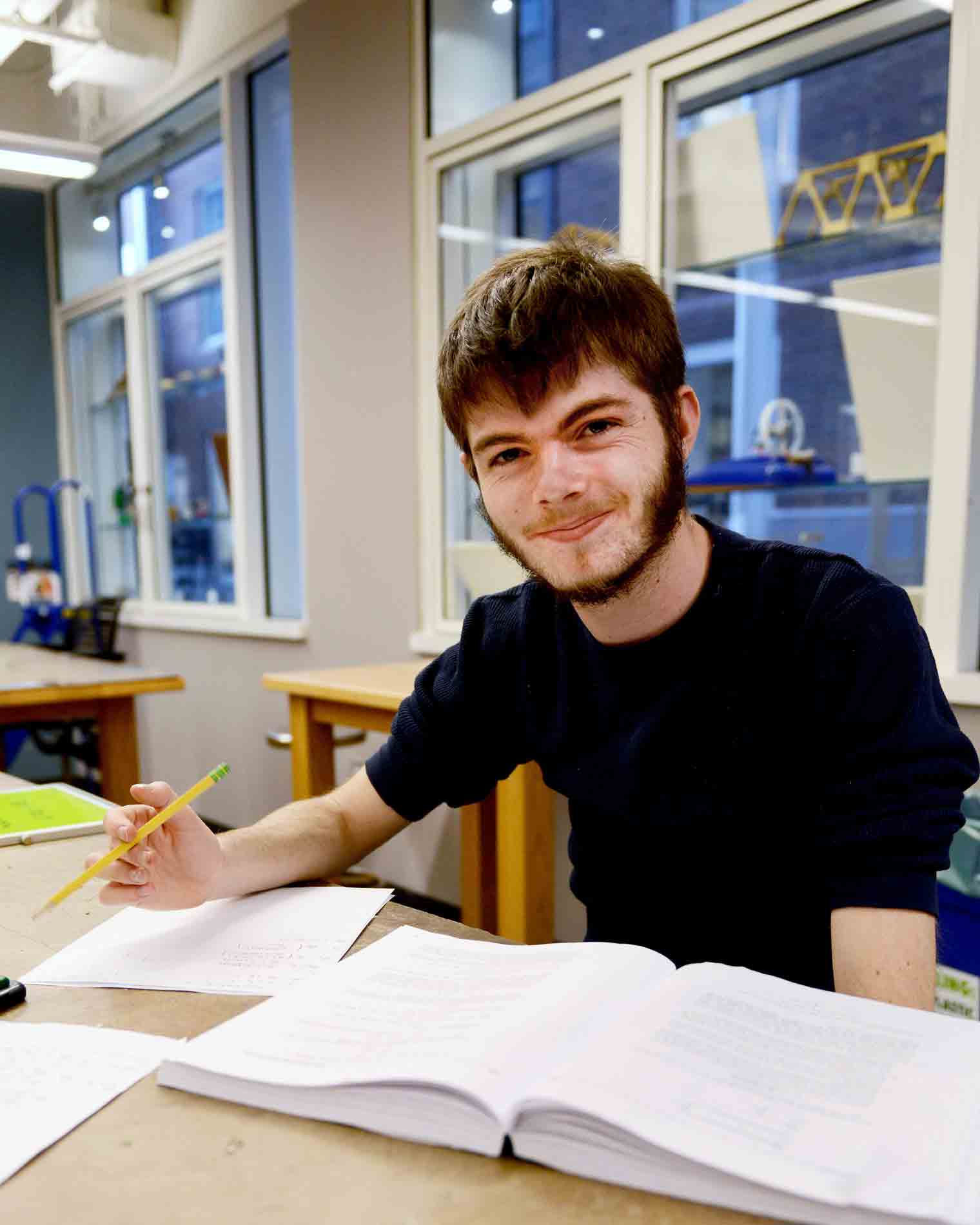So You Want To Be an Engineer?The Vassar-Dartmouth Dual Degree Program
So You Want To Be an Engineer?The Vassar-Dartmouth Dual Degree Program
You can do a lot of things at Vassar, but you can’t build an engine or design, build, and market a frame for an indoor hammock. But if you’re a Vassar student who spends two years at Dartmouth’s Thayer School of Engineering, you can do lots of things like that. Just ask Tim Yoo ’18, Lisa Je ’18, and other Vassar students enrolled in the Thayer Dual-Degree program.

Yoo, a chemistry major from Atlanta, GA, won a chocolate bar and an Amazon gift card from a Dartmouth professor last year for designing the most efficient engine in his thermodynamics class. Je, a chemistry major from New York City, was one of five Vassar students who teamed up to develop the idea for the hammock stand.
Over the past 30 years, dozens of Vassar students have completed the Thayer Dual-Degree program, combining their liberal arts education at Vassar with a fast-track engineering curriculum at Dartmouth. Students spend their first two years at Vassar, then take engineering courses at Dartmouth in their junior year. They complete their engineering degree requirements with a second year at Dartmouth after they graduate from Vassar.
It’s a rigorous undertaking—applicants must compile a grade-point average of at least 3.5 in their first two years at Vassar—but current and former Vassar students say it diversifies their undergraduate education significantly. “What appeals to me is the efficiency of the program,” says Mit Patel ’20, a physics and astronomy major from Galloway, NJ, who hopes to enroll at Thayer next year. “I plan to go to graduate school in astrophysics. but having that engineering degree will give me a lot more flexibility as I consider my career options down the road.”

Dean of Studies Ben Lotto says the dual-degree program produces the best kind of engineers—those with a liberal arts background that teaches them to think critically. “Engineering is about problem solving, and that’s a liberal arts skill,” Lotto says. “It combines the technical training of engineering with human skills and values that are helpful in almost any career. Employers like well-rounded applicants.”
A lot of Patel’s classmates apparently agree. Twenty-three Vassar sophomores, a record number, are seeking admission to the Thayer Dual-Degree program next year. Assistant Dean of Studies Pauline Saavedra says she has always received positive feedback from Vassar students enrolled in the program, and she’s not surprised by the increase in applications. “Last year we distributed a questionnaire to current and former students enrolled in the Thayer program,” Saavedra says. “Those who responded told us it was really rigorous academically, but they said they were able to handle the workload and it was really worthwhile.”
Twenty-three Vassar sophomores, a record number, are seeking admission to the Thayer Dual-Degree program next year.
A recent graduate of the program, Ian Kowalok ’16, agrees with that assessment. “Dartmouth uses a quarter system with 10-week semesters, so all the courses are accelerated,” says
“The transition to Dartmouth was pretty rough,” he adds. “I’d made some close friends in my first two years at Vassar and then suddenly I was gone for a year. But having five years as an undergraduate—the liberal arts experience at Vassar and the engineering courses at Dartmouth—prepared me well for the program at Columbia.”
Like Kowalok, several current Vassar seniors who finished their first year at Dartmouth last year say they had some difficulty adjusting to the volume of work they faced in their first engineering courses. “I thought I had prepared myself for Thayer, but I didn’t have as much math as most of the students, and I really struggled at first,” says Je, a member of the hammock design team. “But we formed study groups and met a lot with the teaching assistants. It was challenging academically, but all the collaborating pulled me through.”

In addition to two engineering courses per semester, Thayer students also take an elective. Je, whose parents are Chinese immigrants, chose Chinese and said she became good friends with the students in that class.
All of the students say they especially enjoy the hands-on aspect of engineering. In a thermodynamics class, every student is required to design and build an engine in the college’s machine shop. Yoo says the thermodynamics project that earned him the candy bar was one of the most challenging classes he ever took, but also one of the most rewarding. “I had a great professor who was passionate about the class and taught the material really well,” Yoo says. “It was my favorite class, but probably the most time-consuming. I think all of us in the program would say the amount of free time you have decreases drastically, but it’s really worth it.”
Two Vassar students currently enrolled in the first year of the dual-degree program say the transition from Vassar to Dartmouth became easier once they took part in some Dartmouth activities.

Ross Guju ’19, a mathematics major from Tampa Bay, FL, joined a fraternity, Kappa Kappa Kappa. “I don’t live in the fraternity house, but I eat most of my meals there, and a lot of my fraternity brothers are engineering majors,” Guju says. “There are a lot of social activities; I’m really glad I joined.”
James Gibson ’19, a biology major from Eastchester, NY, joined the ultimate Frisbee team and is treasurer of Dartmouth’s LGBTQ Club. “It was difficult at first,” Gibson says. “It was a culture shock being a queer student in engineering, but in some ways, that can motivate you to get involved (in campus activities).”
As Mit Patel and other current applicants await word on their acceptance into the program, Patel says he’s prepared for the challenge. “In some ways, leaving Vassar will be bittersweet; I’m active in the South Asian Students Alliance, and I have a job at the observatory that I really love,” he says. “But while some may see leaving friends and familiar surroundings as a negative, I see it as an opportunity. I’m not just earning another degree; I’m expanding my connections. The more you diversify your education, the better chance you have to make a positive impact on the world.”